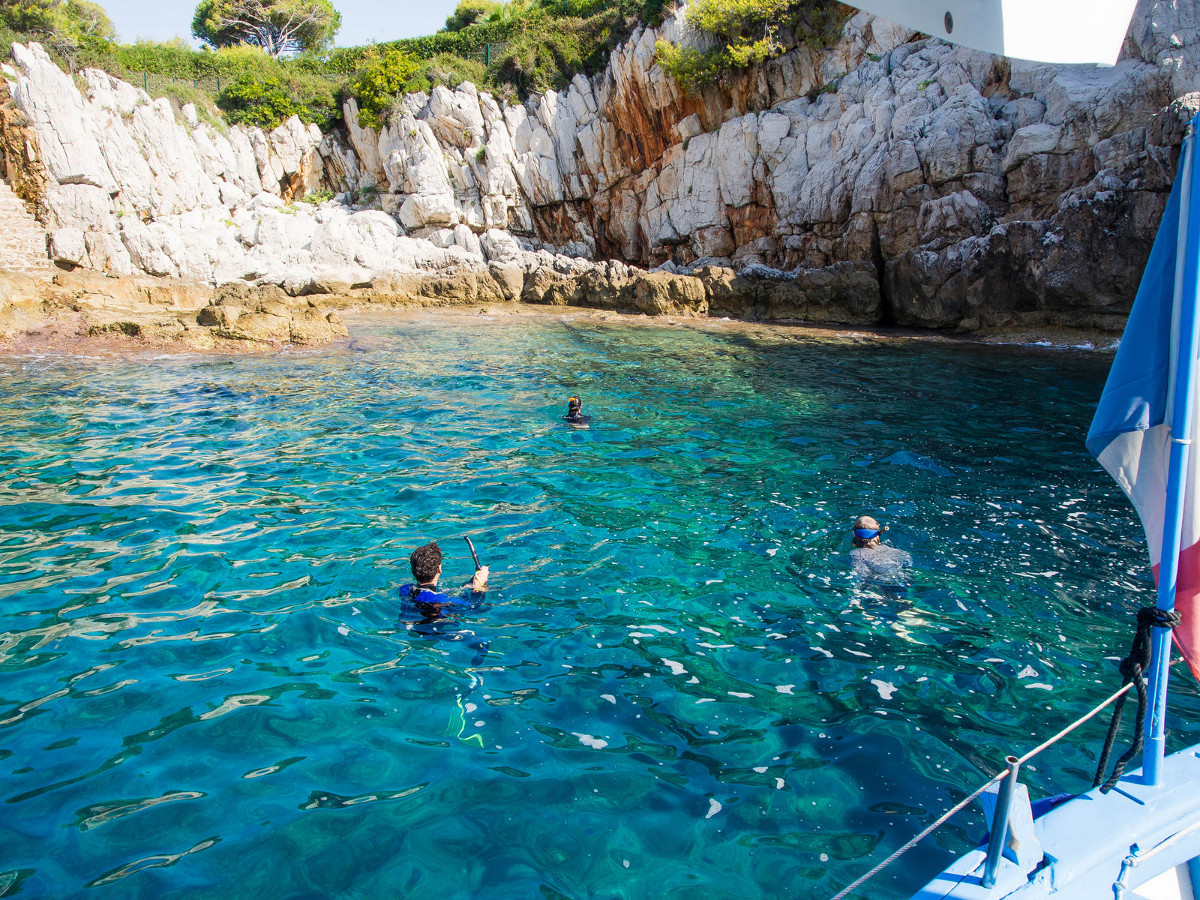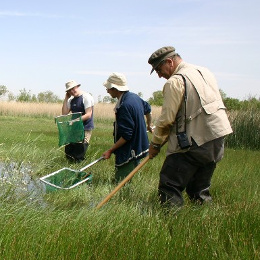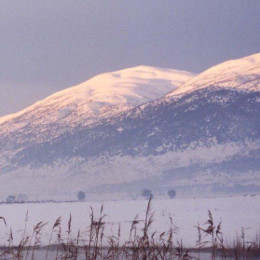Postcard from the Mediterranean
From the beauty of the visible things let us form an idea of Him who is more than beautiful.
—Basil of Caesarea

Imagine your perfect beach day. You might be active or just like to lie down and catch some rays. In your imagination, do you picture having to swim around floating plastic bags, or lay your towel away from some picnic rubbish people haven’t bothered to pick up? I doubt it. For us in the UK, the culprit is often a Styrofoam box with the remnants of a fish and chips dinner that spoils that perfect seaside moment.
I am writing this from the south of France, many people’s ideal beach getaway. We have had meetings at the Oceanographic Museum in Monaco, passed by the main auditorium at Cannes, and spent a lot of time in the water looking for what we call ‘the hidden things of God in the ocean.’ Even here, where there is awareness of environmental issues and regular cleaning of beaches, we have seen plastic stuck in protected and endangered Posidonia seagrass meadows.
Does this just spoil a nice day at the beach or a day out snorkeling for us, or is there a deeper faith issue here? What is the ultimate purpose of beauty?
As the deer pants for streams of water, so my soul pants for you, my God. My soul thirsts for God, for the living God. When can I go and meet with God? Deep calls to deep in the roar of your waterfalls; all your waves and breakers have swept over me.
—Psalm 42:1-2, 7
Psalm 42 expresses our longing for God seen both in his sanctuary and in his creation. It is often when we experience beauty that we have that longing satisfied.
Scripture shows us throughout that beauty is a pointer to the God who is beautiful. The theologian Dr Jame Schaefer has developed a model or lens through which we can look at beauty in the world. I first encountered it in a book I highly recommend called God in the Lab. Initially, we can simply enjoy beauty for our own pleasure. But as the model progresses, we get to the most abstract and spiritually deep aspect of intentionally reflecting on beauty in a way that it helps us to better understand and know God. A number of writers have talked about God’s book of Words and His book of Works. We can use that idea to help us see that when we interpret what we are seeing in the things God has made with the Word of God in hand, it can be a hugely meaningful way to deepen our relationship with God.
Think about an experience with the natural world that drew you deeper into your relationship with God. Will you share it with us?
Bancewicz, Ruth. 2015. God in the Lab: How Science Enhances Faith. Monarch Books, Oxford, UK. 256pp. http://scienceandbelief.org/god-in-the-lab/
We are happy for our blogs to be used by third parties on condition that the author is cited and A Rocha International, arocha.org, is credited as the original source. We would be grateful if you could let us know if you have used our material, by emailing [email protected].



